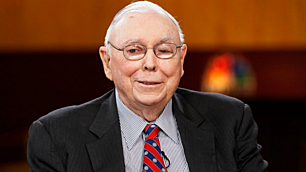Why a solid investment process matters (and 5 stock examples)
A single sentence - and the understated way it’s phrased by Claremont Global's head and co-portfolio manager Bob Desmond sums up the way the firm works.
“All we’re trying to do is put together a portfolio of 10 to 15 of the best companies in the world,” Desmond said during an investor webinar on Wednesday.
It’s the first five words that strike me: “All we’re trying to do” – as if it’s the simplest thing in the world. But the truth is that it's not easy to assemble a high-conviction portfolio of companies that delivers reliable returns throughout the market cycle. If it was, wouldn’t we all be millionaires?
.png)
As Desmond and his co-portfolio manager Adam Chandler explain, their wholesale fund targets a return of 8-12% pa over a five year period – and the Claremont Global Fund has never missed this target in the 12 years since inception.
The presentation delivered by the pair emphasises some of their key principles and their method in selecting companies and maintaining the portfolio.
An emphasis on downside protection is an early mention from Desmond, who notes the value – and difficulty – of this in conditions such as those markets have experienced in recent years.
He explained the four criteria that companies must meet before being considered for portfolio inclusion:
- Growing businesses, with a minimum of 5% top-line growth.
- Sustainably high return on capital
- Strong balance sheets, or as he put it, “we don’t like debt.”
- Management with a “relentless focus on competitive advantage rather than growth” and strong capital allocation.
“We are quality first but we are value investors and always make sure we buy great businesses at fair prices,” Desmond said.
“We don’t want to buy great businesses at very fancy prices because that’s always going to result in a bad outcome for clients.”
The fund size currently sits at around $1.4 billion, which is right in the sweet spot for both Desmond and Chandler.
“We can look after our team well, we can invest back in the research process and in client service. But we’re not so big that we can only invest in mega-caps,” Desmond said.
The fund can invest in companies down to around $3 billion in market cap but in most cases, the minimum is around $10 billion.
What Claremont Global avoids
Desmond emphasises a point that is not often heard from asset managers: the areas they choose to avoid. In a broader sense, they eschew macroeconomics in their decisions. In supporting this principle, he cites the following statistic:
“The Fed, with all its information, is accurate on its inflation forecasts less than 30% of the time and on their GDP forecasts less than 20% of the time. So, we never put the fund together with a macro overlay, but via one-by-one bottom-up stock picking,” Desmond said.
“That frees up a lot of time to focus on the things that we think matter…we’re more interested in what businesses are going to do over the next five years.”
More specifically, some types of companies they avoid entirely include:
- Utilities
- Pharmaceuticals
- Banks and insurers
- Resources
- Commodities
80 years is the average age of companies in the Claremont Global portfolio.
“We don’t like ‘johnny-come-lately’ companies so you’re not going to see unproven, very exciting companies with huge TAMs and no profits,” Desmond said.
“We want to be in businesses that are diversified by customer, geography, and product.”
Organisational culture is something they spend a lot of time looking at before investing in a company. This is one of the things the team researches, with Desmond explaining they commonly adopt a five-year watch list period before buying a company.
Their due diligence also includes observing employee satisfaction levels and observing competitors, assessing data such as net promoter scores and employee turnover. This is all part of their overarching desire to only buy companies that dominate their respective category.
“We spend weeks and months talking to experts, people who’ve worked at the companies, competed with them, to understand the culture of those businesses we own,” Desmond says.
“In an ideal world, we’ll buy a business for the right price, strap onto that earnings growth and hold that business forever. That’s the part of the universe we’re looking at.”
So, what do they own?
The companies in the Claremont portfolio are selected from what is already a quite narrow universe of companies, Desmond estimates there are around 45 companies that qualify for Claremont portfolio inclusion. That’s a surprisingly small number, especially when you consider it’s whittled down from the more than 3,500 companies that are listed on the NASDAQ alone.
The portfolio currently comprises 13 companies, the top five being:
- Adobe (NASDAQ: ADBE)
- Alphabet (NASDAQ: GOOGL)
- CME Group (NASDAQ: CME)
- Nike (NYSE: NKE)
- Visa (NYSE: V)
Providing commentary on some of these, Chandler notes that Adobe’s share price last year was struggling. “We thought the core business was still in good shape but there were a lot of competitive questions about it,” he said

“We were adding to that position and this year have seen that investment case proven, with strong top-line revenue growth and operating margins.”
Alphabet, with 11% constant currency revenue growth we’re continuing to see operating profit margins increase,” Chandler says.
“Revenue growth is accelerating and we’ve seen a really strong bottom-line performance from Alphabet.”
CME Group is the world’s largest futures exchange, and Chandler notes the firm's revenue growth has been boosted by the higher interest rate environment.
Though the rising rate environment has been a positive, Chandler emphasises this was never part of Claremont’s investment thesis: “We saw value even if rates stayed at lower levels.”
On Nike, Chandler emphasises the firm’s potential for margin expansion in the coming years.
“They’ve had some transitory headwinds as we’ve gone through COVID, with supply chain issues and higher freight costs. But as we look over the next five years, we can see margins heading up into the high teens.”
Another long-time holding of the fund, Visa, reported 10% cc revenue growth and guided to another year of double-digit revenue growth in 2024.

If you'd like to learn more about Desmond and the Claremont Global team's investing style, you can read this piece recently written by my colleague Hans Lee:

3 topics
6 stocks mentioned
1 fund mentioned
3 contributors mentioned

